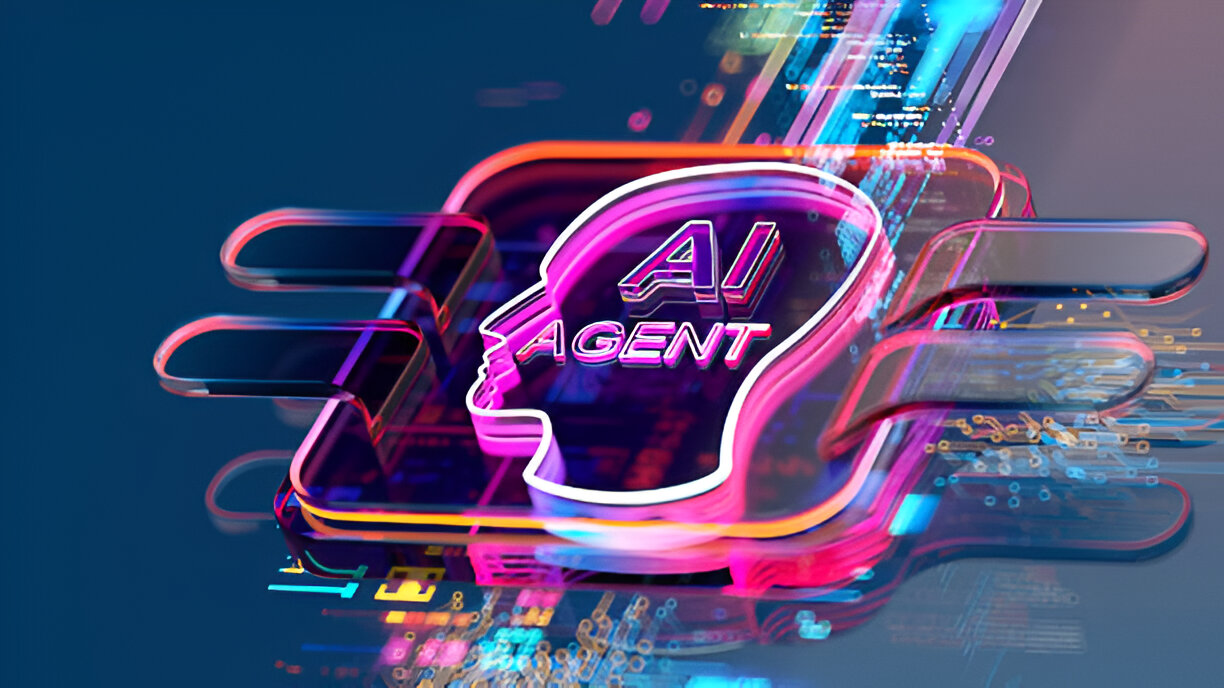Do you often feel overwhelmed by repetitive tasks? Salesforce AI automation is here to help you regain control. Imagine a system that learns and adapts to your business needs. How much faster could you achieve your goals if mundane tasks were handled automatically? In this blog, we’ll explore how Salesforce AI automation, paired with intelligent workflows, can redefine your business efficiency.
Understanding Salesforce AI Automation
Definition and Core Concepts
Salesforce AI automation refers to the use of artificial intelligence within the Salesforce ecosystem to streamline and enhance business processes. This innovative technology allows organizations to automate repetitive tasks, analyze data more effectively, and create intelligent workflows that support better decision-making. At its core, Salesforce AI automation leverages machine learning algorithms to provide insights, predict customer behavior, and optimize performance across various organizational functions.
The core concept of Salesforce AI automation lies in its ability to learn and adapt. Salesforce Einstein, the AI component of Salesforce, enables businesses to personalize customer interactions, forecast sales trends, and automate tasks that were previously time-consuming. By integrating AI into daily operations, organizations can improve efficiency, reduce errors, and enhance overall service delivery significantly.
In practice, Salesforce AI automation helps businesses automate workflows such as lead scoring, email marketing campaigns, and customer support interactions. By removing the manual input, organizations can experience faster turnaround times and cultivate healthier customer relationships. This results in not only time savings but also improved accuracy and effectiveness in executing tasks, ultimately boosting productivity and business performance.
Key Features of Salesforce AI Tools
Salesforce’s suite of AI tools offers various features that contribute to automation and efficiency. Some key features include:
- Predictive Analytics: This allows businesses to use historical data to forecast customer behavior and sales trends effectively, enabling proactive decision-making.
- Natural Language Processing (NLP): NLP helps in understanding and processing human language, allowing for more interactive customer service via chatbots while handling inquiries with ease and accuracy.
- Automated Task Management: AI tools automate routine tasks such as data entry, follow-ups, and task assignments, freeing up employees’ time for higher-value activities.
- Personalized Recommendations: By analyzing customer data and interactions, Salesforce AI can deliver personalized product or service recommendations to enhance customer experience.
Using these features, businesses can craft intelligent workflows that ensure tasks are completed efficiently, with minimal human intervention. This leads to a streamline in operations which can create a more agile organization poised to tackle market demands effectively.
Benefits of Intelligent Workflows
Increased Productivity Through Automation
One of the most significant benefits of implementing Salesforce AI automation is the increase in productivity. By automating repetitive tasks, employees can focus on more strategic aspects of their work, such as innovation, customer engagement, and relationship building. For example, automating lead qualification processes allows sales teams to prioritize high-quality leads without spending time manually sorting through potential customers.
Additionally, intelligent workflows can simplify complex processes. By setting up automation for approvals, notifications, and updates within a sales pipeline, organizations can ensure that everyone stays informed and accountable. Consider a scenario where a company automates its customer follow-up emails; this not only ensures timeliness but also enhances customer satisfaction because clients receive relevant information promptly.
Moreover, intelligent workflows facilitate better collaboration across teams. When departments can share relevant data effortlessly through AI-driven channels, projects run smoother and communication is clearer, leading to quicker decision-making and resolution of challenges.
Better Decision Making with Data Insights
Intelligent workflows powered by Salesforce AI automation enable decision-makers to utilize real-time data insights swiftly. By analyzing data trends and customer behavior patterns, businesses can make informed decisions that align with market demands. For instance, through predictive analytics, a company can identify which products are gaining traction, allowing them to adjust marketing strategies accordingly.
Without AI tools, understanding data trends can take significant time and effort, often resulting in missed opportunities. Conversely, Salesforce AI surfaces the right data at the right time, making it easier for organizations to strategize effectively. Additionally, these tools can help minimize risks by providing insight into the potential outcomes of different business decisions.
The integration of AI-driven analytical tools ensures that data can be accessed uniformly across departments, promoting a data-driven culture throughout the organization. This ultimately leads to more accurate forecasting, better product development, and enhanced customer satisfaction.
Integrating Salesforce AI Automation
Steps to Implement Automation in Workflows
Successfully integrating Salesforce AI automation into your workflows involves strategic planning and execution. Here are key steps to consider:
- Identify tasks for automation: Start by evaluating your current workflows and identifying tasks that are repetitive and consume a significant amount of time. This could include data entry, generating reports, or customer follow-ups.
- Choose the right Salesforce tools: Salesforce offers a plethora of tools to facilitate automation, such as Salesforce Flow for process automation and Einstein Analytics for data-driven insights. Assess which tools best suit your identified needs.
- Monitor and adjust workflows regularly: Once automation is implemented, monitoring the performance and the results is essential. Regularly reviewing the outcomes allows for necessary adjustments and enhancements to ensure continued efficiency.
Following these structured steps will not only improve the workflow but also secure employee buy-in, as they can see tangible benefits from the automated processes, reducing the anxiety of job displacement.
Tips for Seamless Integration
To ensure seamless integration of Salesforce AI automation into existing workflows, consider the following tips:
- Engage Stakeholders: Include team members from various departments in the planning process to understand their needs and ensure they are on board with the changes.
- Provide Training: Equip staff with proper training on how to use new tools effectively. Familiarity with the system can alleviate concerns and increase adoption rates.
- Set Clear KPIs: Establish key performance indicators focused on measuring improvements in efficiency and productivity post-implementation. This data can highlight the success and areas of improvement for future projects.
By taking the time to emphasize communication, training, and performance metrics, organizations can foster an environment that welcomes AI-driven transformations.
Real-World Applications of Salesforce Automation
Case Studies of Successful Implementations
The impact of Salesforce AI automation can be seen across various businesses. For example, a global e-commerce brand adopted Salesforce automation to improve their customer service response time. By implementing AI-powered chatbots, they could handle numerous customer queries simultaneously. As a result, the time taken to resolve customer issues reduced by over 30%. This not only enhanced customer satisfaction but also freed customer service agents to handle more complex cases.
Another standout case comes from a financial services company that integrated Salesforce for their marketing automation. They utilized AI to segment their customer base effectively and personalize marketing campaigns. This step resulted in a 25% increase in conversion rates, showcasing the power of informed marketing interventions made accessible through intelligent workflows.
Industries Benefiting from Intelligent Workflows
Various industries are experiencing the transformative benefits of intelligent workflows through Salesforce AI automation. Sectors such as:
- Healthcare: AI automates appointment scheduling, patient follow-ups, and billing tasks, allowing healthcare professionals to focus more on patient care.
- Retail: Automation of inventory management, marketing, and customer relationship management helps retail businesses achieve operational efficiency and improve customer experiences.
- Telecommunications: Companies in this sector use AI-driven insights for better network management, forecasting usage patterns, and streamlining customer service processes.
These industries demonstrate how intelligent workflows enable organizations to pivot swiftly in a competitive landscape, harnessing the power of Salesforce AI automation to its fullest.
Challenges and Solutions in AI Automation
Common Barriers to Implementation
Despite the numerous benefits of AI automation, organizations often face challenges during implementation. Resistance to change is one of the most significant barriers, with employees fearing job losses or the complexity of using new systems. Additionally, inadequate data quality can hinder the performance of machine learning models, leading to ineffective automation outcomes.
Furthermore, organizations may struggle with integration challenges when attempting to blend Salesforce tools with existing legacy systems. Without proper planning and resource allocation, automation efforts can fall flat, resulting in wasted resources and time.
Overcoming Resistance to Change
To mitigate the challenges associated with implementing Salesforce AI automation, it’s essential to focus on change management. Here are some strategies:
- Communicate the Benefits: Clearly articulate the advantages of automation to employees. Highlight how it allows them to concentrate on higher-value tasks and improve job satisfaction.
- Offer Gradual Implementation: Instead of a full-scale overhaul, consider rolling out automation in phases. This approach can help employees acclimatize and gradually adjust to new workflows.
- Provide Continuous Support: Ensure ongoing training and support, so employees feel supported throughout the transition. Open lines of communication can help address concerns and build confidence.
By actively engaging employees and preparing them for changes, organizations can successfully overcome barriers to AI automation implementation.
Future of Salesforce AI Automation
Emerging Trends in AI Solutions
As technology continues to evolve, several trends in Salesforce AI automation are becoming apparent. The incorporation of advanced machine learning capabilities is a significant area of development. These enhancements will allow organizations to automate more complex tasks and gain deeper insights from data analytics.
Another trend includes personalization at an unprecedented level. AI is enabling highly tailored customer experiences by analyzing preferences and behaviors. This evolution suggests that businesses need to rethink their customer engagement strategies continually.
Data privacy and ethical AI practices are also taking center stage, requiring organizations to establish robust frameworks to manage data responsibly. As regulations around data management tighten, companies must ensure they are compliant while leveraging AI capabilities.
The Role of AI in Business Strategy
As AI becomes more ingrained in business practices, it will play a crucial role in shaping strategic objectives. Organizations will begin to leverage AI insights for making decisions at an executive level, pushing for agile business models that continuously adapt to market dynamics.
Moreover, as Salesforce AI solutions expand, businesses that prioritize AI-first strategies can gain a competitive advantage by innovating faster and responding more efficiently to customer needs. Those who integrate these technologies into their core business practices will likely emerge as leaders in their respective industries.
Conclusion
In summary, Salesforce AI automation offers transformative benefits. Intelligent workflows streamline operations, enhance productivity, and support data-driven decisions. By embracing tools like Salesforce Einstein, companies can navigate challenges and maximize their efficiency. Trust Wildnet Edge—an AI-first company—for expert guidance in integrating these solutions into your business. As AI continues to redefine efficiency, now is the time to harness its power and lead your industry forward.
FAQs
Q1: How can Salesforce AI automation help my business?
Salesforce AI automation streamlines tasks, improves efficiency, and allows teams to focus on higher-value activities, enhancing overall productivity.
Q2: What are intelligent workflows in Salesforce?
Intelligent workflows are automated processes that leverage Salesforce AI to enhance productivity, enabling smoother operations and improved decision-making.
Q3: What common challenges arise with Salesforce AI automation?
Businesses often face challenges such as resistance to change, integration issues with legacy systems, and insufficient data quality affecting automation success.
Q4: How can I implement Salesforce AI automation in my workflows?
Begin by identifying repetitive tasks, selecting appropriate tools, and monitoring workflow performance regularly to optimize automation impacts.
Q5: What trends are shaping the future of Salesforce automation?
Emerging trends include advanced machine learning capabilities, increased personalization in customer experiences, and a growing emphasis on data privacy and ethical AI practices.

Nitin Agarwal is a veteran in custom software development. He is fascinated by how software can turn ideas into real-world solutions. With extensive experience designing scalable and efficient systems, he focuses on creating software that delivers tangible results. Nitin enjoys exploring emerging technologies, taking on challenging projects, and mentoring teams to bring ideas to life. He believes that good software is not just about code; it’s about understanding problems and creating value for users. For him, great software combines thoughtful design, clever engineering, and a clear understanding of the problems it’s meant to solve.
 sales@wildnetedge.com
sales@wildnetedge.com +1 (212) 901 8616
+1 (212) 901 8616 +1 (437) 225-7733
+1 (437) 225-7733















 ChatGPT Development & Enablement
ChatGPT Development & Enablement Hire AI & ChatGPT Experts
Hire AI & ChatGPT Experts ChatGPT Apps by Industry
ChatGPT Apps by Industry ChatGPT Blog
ChatGPT Blog ChatGPT Case study
ChatGPT Case study AI Development Services
AI Development Services Industry AI Solutions
Industry AI Solutions AI Consulting & Research
AI Consulting & Research Automation & Intelligence
Automation & Intelligence















